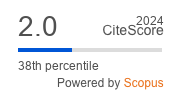Inherited Thrombophilia and Risk of Thrombosis in Children with Cancer: a Single-center Experience
DOI:
https://doi.org/10.5644/ama2006-124.430Keywords:
Inherited Thrombophilia, Cancer, Thrombosis, ChildrenAbstract
Objectives. Thrombosis is an increasingly recognized complication of childhood malignancy and its treatment. The incidence and etiology of pediatric cancer-related thrombosis is still not well understood. The aim of this study was to evaluate the preva- lence of common prothrombotic genetic conditions in children with cancer, the frequency of thrombosis, and the role of inher- ited thrombophilia in the development of thrombosis in a pediatric oncology population.
Patients and Methods. Forty-seven children (36 treated for hematological malignancies and 11 for solid tumors) with a median age of 8.8. years (range 0.4 – 19.3 years) were included in the study. Genetic polymorphisms of Factor V Leiden (G1691A), prothrombin G20210A, and methy- lenetetrahydrofolate reductase (MTHFR) C677T were determined by real-time polymerase chain reaction-based DNA analysis.
Results. Four (8.5%) patients were heterozygous for Factor V Leiden, 3 (6.4%) were heterozygous for prothrombin G20210A mutation, and 3 (6.4%) were homozygous for MTHFR C677T mutation. All patients had implanted central venous catheters. Four (8.5%) children had documented thrombosis, three of which were in the upper venous system. Two of the four patients with thrombosis had Factor V Leiden heterozygosity.
Conclusions. Thrombosis is an important complication of childhood cancer. The risk of thrombosis may be increased in patients with Factor V Leiden. In the absence of consensus guidelines, our results support the recommendation for thrombophilia screening in children with cancer.
Downloads
Published
Issue
Section
License
Copyright (c) 2024 Ana Đordević, Blaženka Grahovac, Silvije Šegulja, Lidija Bilić Zulle, Jelena Roganović

This work is licensed under a Creative Commons Attribution-NonCommercial 4.0 International License.





